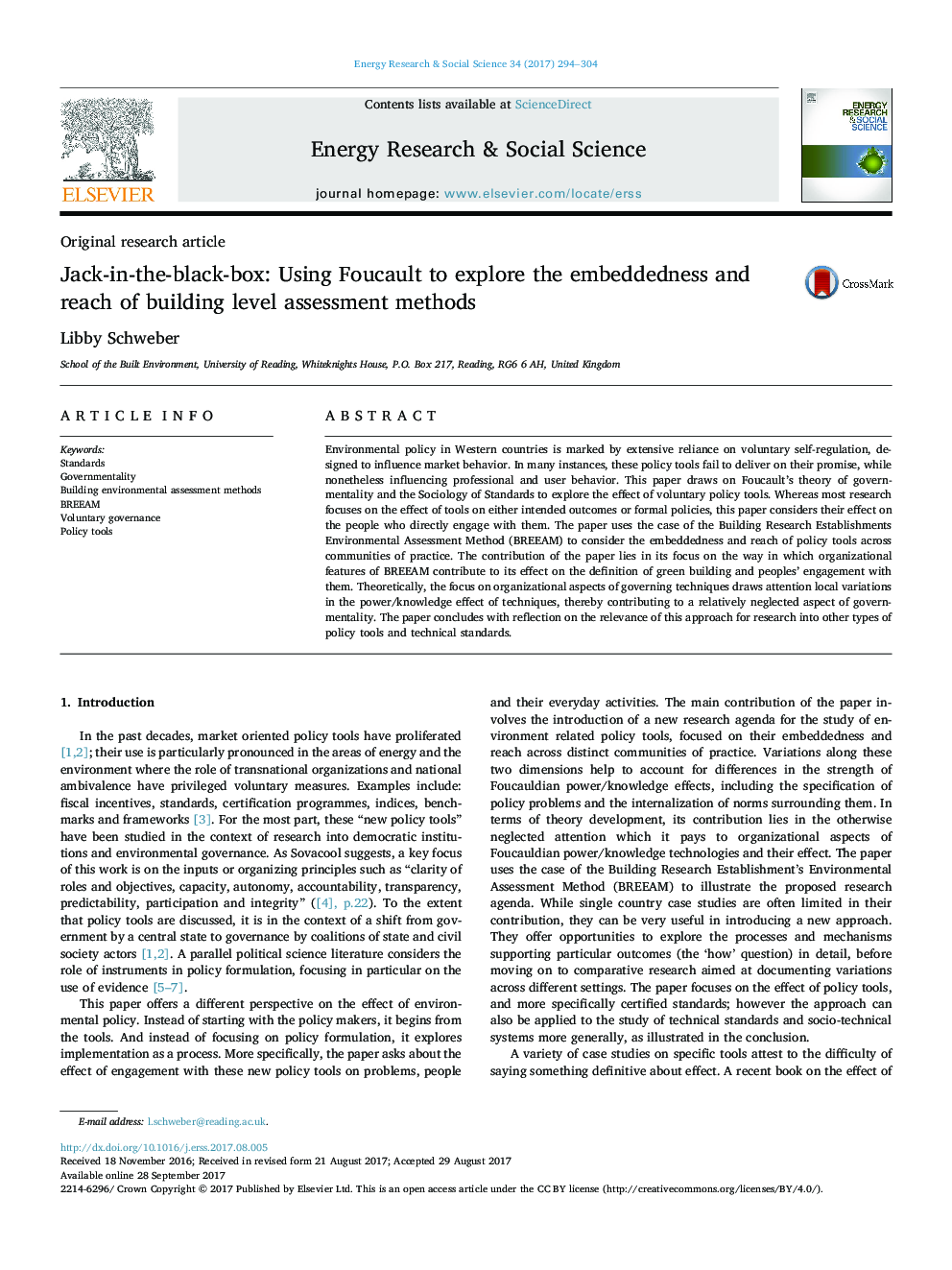| Article ID | Journal | Published Year | Pages | File Type |
|---|---|---|---|---|
| 6463811 | Energy Research & Social Science | 2017 | 11 Pages |
Environmental policy in Western countries is marked by extensive reliance on voluntary self-regulation, designed to influence market behavior. In many instances, these policy tools fail to deliver on their promise, while nonetheless influencing professional and user behavior. This paper draws on Foucault's theory of governmentality and the Sociology of Standards to explore the effect of voluntary policy tools. Whereas most research focuses on the effect of tools on either intended outcomes or formal policies, this paper considers their effect on the people who directly engage with them. The paper uses the case of the Building Research Establishments Environmental Assessment Method (BREEAM) to consider the embeddedness and reach of policy tools across communities of practice. The contribution of the paper lies in its focus on the way in which organizational features of BREEAM contribute to its effect on the definition of green building and peoples' engagement with them. Theoretically, the focus on organizational aspects of governing techniques draws attention local variations in the power/knowledge effect of techniques, thereby contributing to a relatively neglected aspect of governmentality. The paper concludes with reflection on the relevance of this approach for research into other types of policy tools and technical standards.
